Ban Force-Feeding
Demand the Government bans imports of foie gras made by force-feeding – SIGN NOW!
BAN foie gras imports
The process of gavage (also known as force-feeding) is considered incompatible with the provisions of The Welfare of Farmed Animals (England) Regulations 2000, which later became The Welfare of Farmed Animals Regulations (2007), which is mirrored across England, Northern Ireland, Scotland, and Wales. By 2011, foie gras production was banned throughout the UK.
Hundreds of thousands of Brits have supported our campaign calling for an end to foie gras imports.
It is currently enshrined in law that: ‘Animals shall be fed a wholesome diet which is appropriate to their age and species and which is fed to them in sufficient quantity to maintain them in good health, to satisfy their nutritional needs and to promote a positive state of well-being.’
And that:
‘No animals shall be provided with food or liquid in a manner, nor shall such food or liquid contain any substance, which may cause them unnecessary suffering or injury.’
We claim to be a nation of animal lovers, so why are we allowing such an abhorrent product to appear in our shops?
What is foie gras?

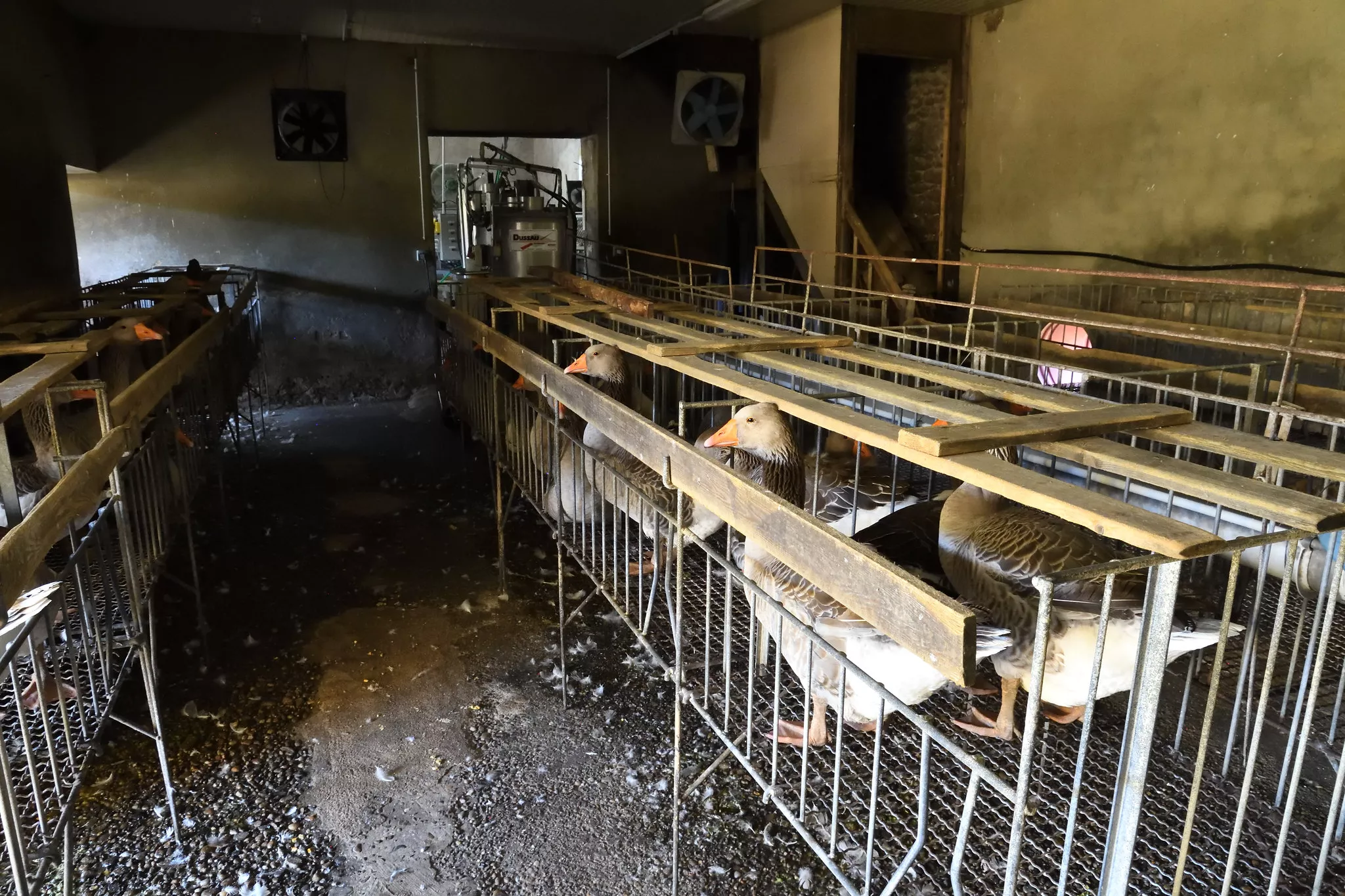
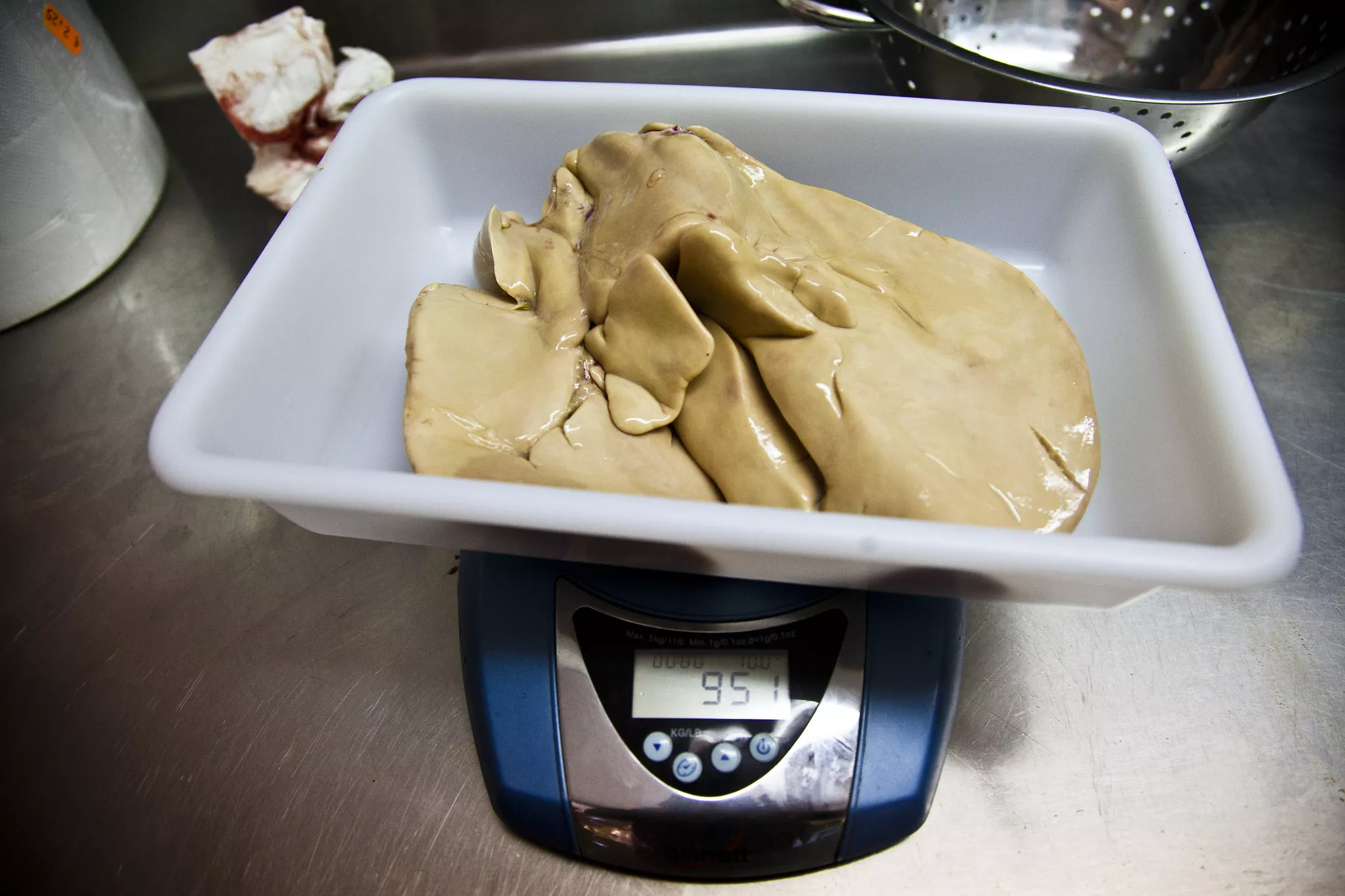
Ghastly ‘gavage’
Foie gras produced by force-feeding is immensely cruel and controversial. Production of this so-called ‘delicacy’ causes unimaginable suffering to millions of birds each year.
Animal Equality’s investigations show the horrific practices involved in ‘gavage’ – the force-feeding process where sensitive ducks and geese are brutally fattened up using a feeding tube that is forced down their throats.
These animals endure severe physical and psychological pain throughout their short lives.
The ruthless force-feeding process causes the birds’ livers to swell to ten times their natural size. The animal’s diseased liver is then sold and marketed as foie gras.

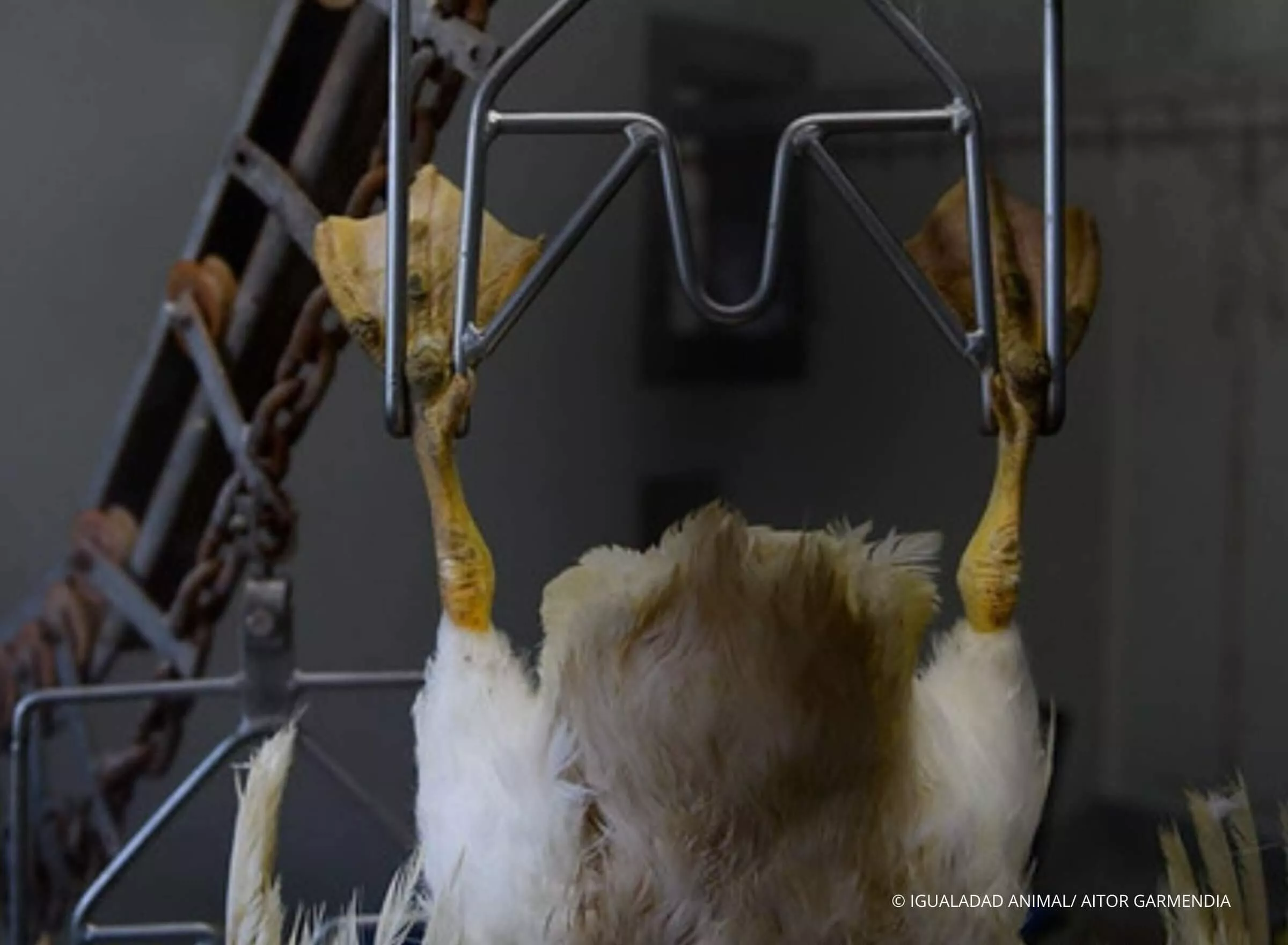

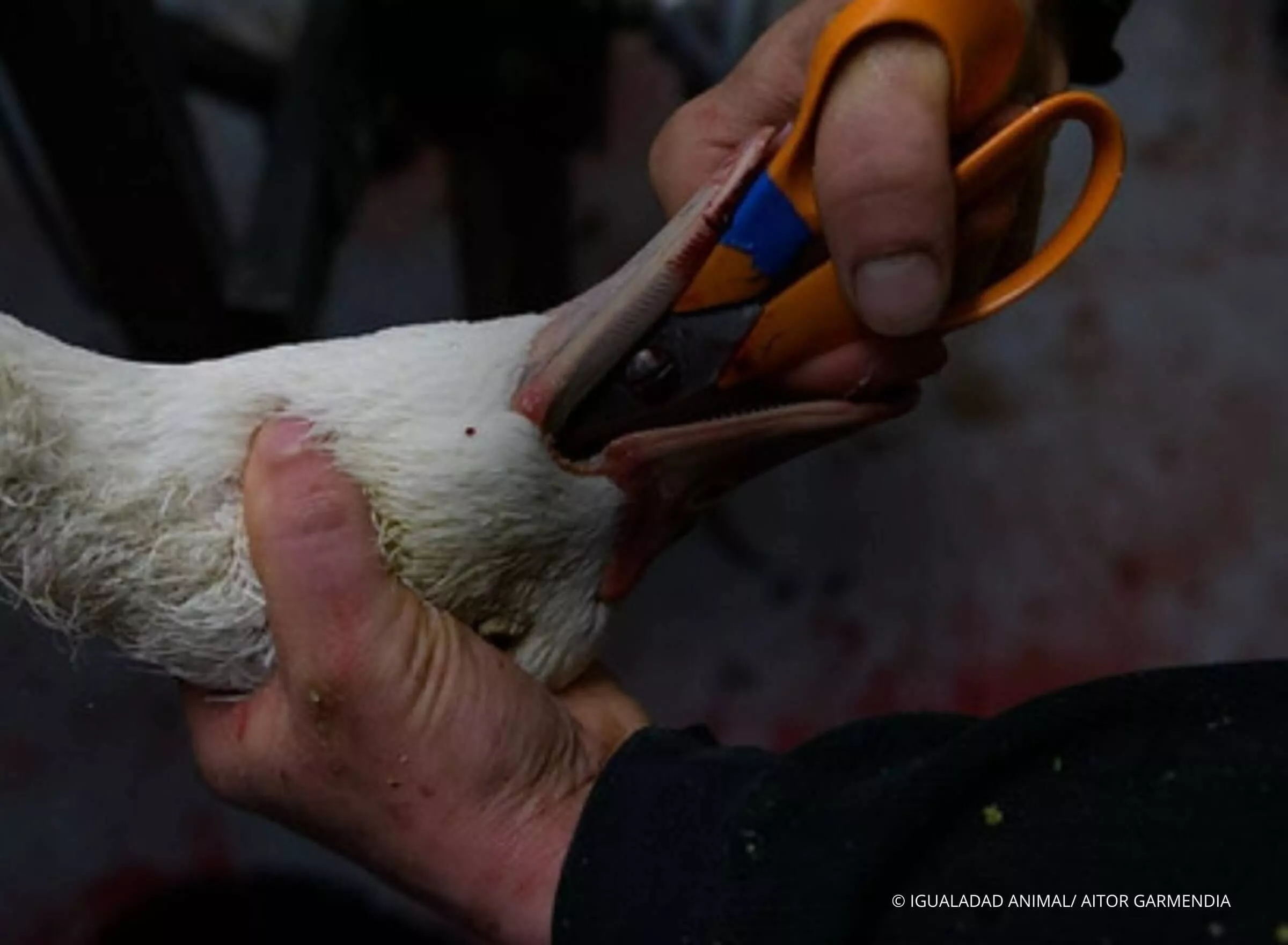
Progress so far
Following the launch of our campaign in 2017, we have made significant progress towards achieving our goal of securing a ban on the importation of foie gras made by force-feeding:
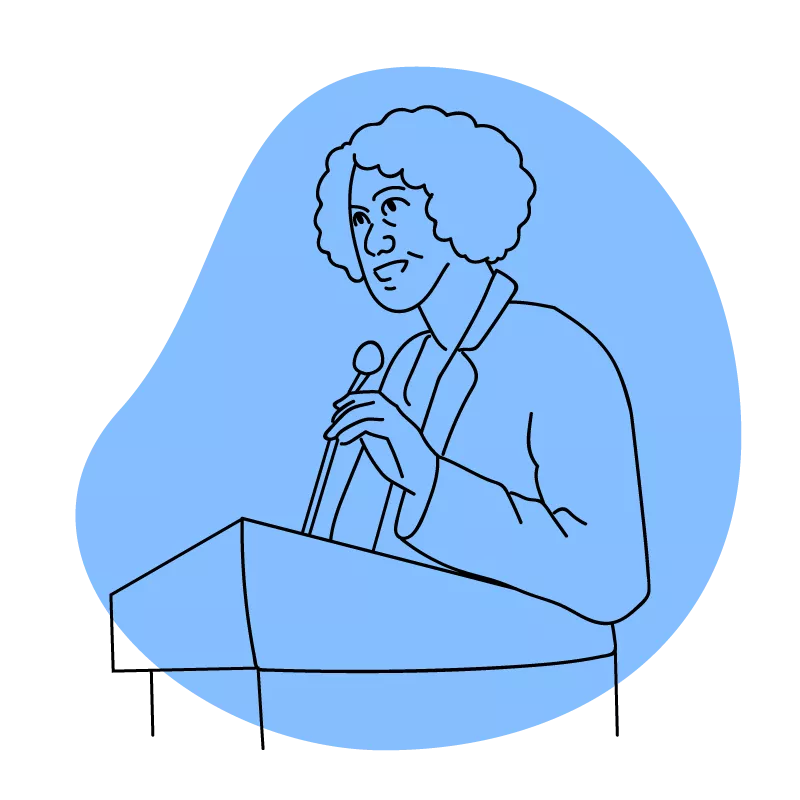
There is strong political appetite for a ban. Animal Equality has secured cross-party backing, with leading political figures in Labour, Conservative, Liberal Democrat and Green parties announcing support for our demand. See below our progress in securing the ban:
• November 2024: Animal Equality hosts a Parliamentary event with Ruth Jones MP, supported by Members of the European Parliament, to present on why this ban must be enacted urgently.
•June 2024: Steve Reed, Labour MP for Streatham and Croydon North, commits to ban products made from force-feeding
• October 2023: Former MP Giles Watling tables a Westminster Debate, supported by other MPs and speaks up in favour of the ban, highlighting the cruelty involved. The full debate was broadcast live on Parliament TV and reported in Hansard.
• August 2021: After receiving no response, a follow-up letter is submitted. We then invite Cabinet Ministers and Government officials to a roundtable discussion with Animal Equality and the signatories of the open letter.
• March 2021: The Government sources confirm publicly that they are determined to implement a ban ‘in the next few months’. Animal Equality submits a letter asking for a clear roadmap and actions signed by cross-party MPs.
• April 2020: Following lobbying from Animal Equality and sympathetic MPs, Lord Goldsmith confirms in a letter that “The production of foie gras from ducks or geese using force feeding (known as gavage) raises serious animal welfare concerns” and is “incompatible with our domestic legislation”.
• June 2018: With the help of Henry Smith former MP for Crawley, we host a reception in the House of Commons that prompted an adjournment debate in Parliament on the proposed ban.
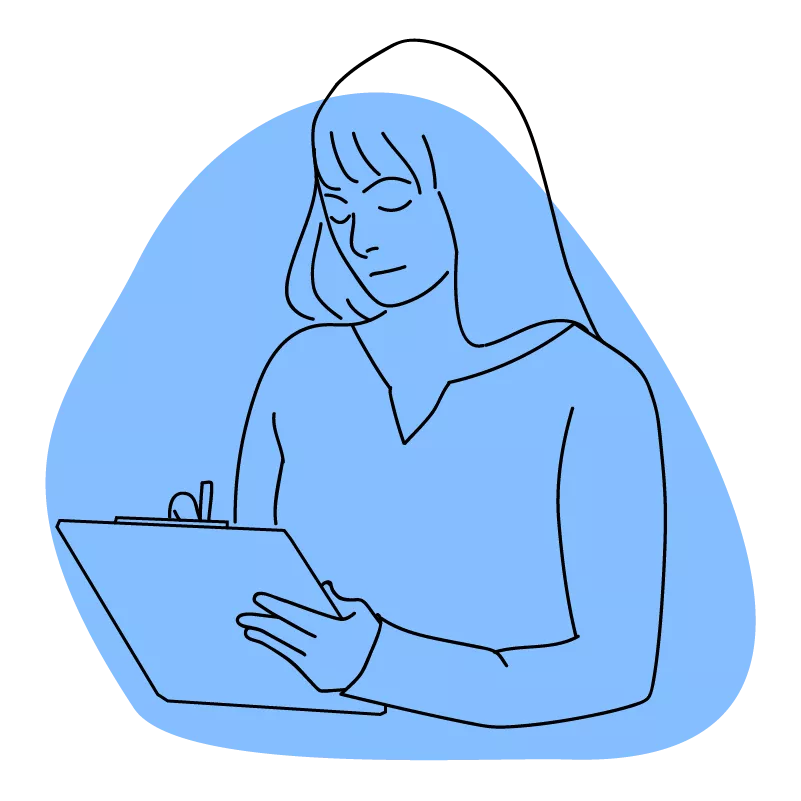
After Animal Equality released footage obtained from undercover investigations showing the horrors and cruelty of this industry, the British public showed disgust and outrage. See below for some of the highlights in the public support received with this campaign:
• November 2023: We obtain exclusive, never-before-seen footage captured by Animal Equality investigators on multiple farms in France. This shocking video unveils the harsh and merciless realities of the foie gras industry.
• October 2023: YouGov poll organised by Animal Equality reveals that 86% of surveyed UK citizens are in favour of a ban. This poll is then covered in the front page of The Times as evidence that the majority of the British population are against foie gras imports.
• February 2023: Animal Equality and PETA UK send an open letter to the Prime Minister, urging him to end foie gras imports. The letter was signed by a host of famous faces, including Paul O’Grady MBE, Miriam Margolyes OBE, Dame Twiggy Lawson DBE, Mark Rylance, Alesha Dixon, Jon Richardson, Jo Brand, Diane Morgan and Josh Widdicombe.
• February 2022: Peter Egan sends a letter to UK Ministers urging a ban, signed and supported by celebrities Ricky Gervais, Dr Amir Khan, and Joanna Lumley.
• September 2021: Actor and animal advocate Peter Egan, Michelin-starred French chef Alexis Gauthier and Animal Equality volunteers to hand in over 225,000 signatures to 10 Downing Street.
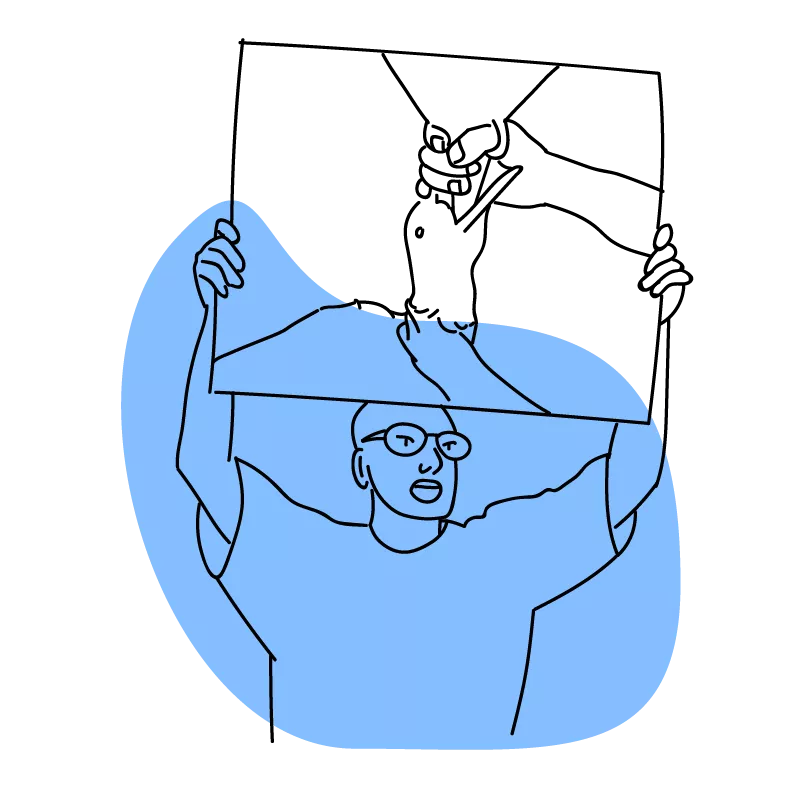
Thanks to the help of our dedicated volunteers and activists, our peaceful campaign actions have successfully encouraged a number of restaurants to remove foie gras from their menus, including Tate Modern, Royal Festival Hall’s Skylon restaurant, Wallace Collection’s brasserie, Bluebird Chelsea and Crowne Plaza hotels.

There is strength of feeling on this serious issue. With support from an army of celebrities and animal welfare experts, our crucial message has been spread far and wide.
Alan Carr is the latest in a long list of animal-lovers and celebs encouraging the Government to enact a ban as soon as possible. Other stars in support include Ricky Gervais, Dev Patel, Joanna Lumley, Peter Egan and Thandiwe Newton, alongside respected animal specialist, Emma Milne.


